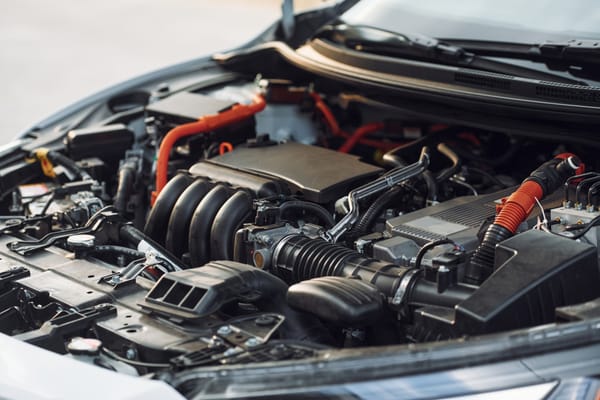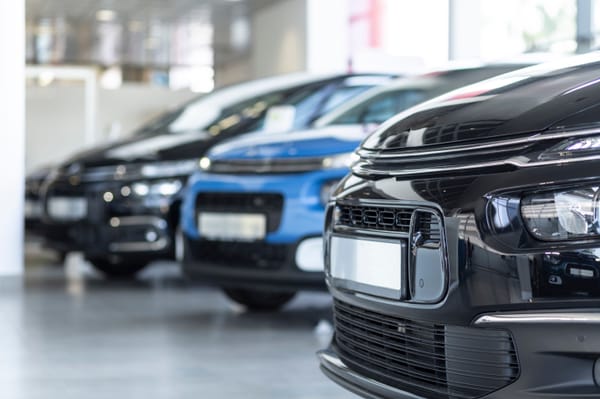How to Handle Common Breakdowns on Kenyan Roads

There’s nothing quite like the freedom of a solo drive to Nanyuki, a spontaneous road trip to Kisumu, or that early morning dash to beat Nairobi traffic. But let’s be real - cars don’t always play nice. And when they don't, Kenyan roads can be unforgiving.
From dusty village trails in Kitui to the slippery escarpment curves near Mai Mahiu, breakdowns happen - and often at the worst possible time. The good news? With the right know-how, a solid checklist, and a dash of common sense, you can navigate most car mishaps like a seasoned rally driver.
Whether you're a city commuter, road trip junkie, or upcountry regular, this is your go-to guide for keeping calm (and mobile) when things go south.
The Kenyan Road Reality Check
Kenya boasts over 160,000 km of roads - some silky smooth, others best described as “spiritual journeys.” That means your breakdown experience on Lang’ata Road won’t be the same as one near Lodwar. Our weather swings - from torrential April rain to brutal Turkana heat - add another layer of drama.
Lesson one: breakdown preparedness wherever you are in the world isn't optional - it's essential!
Must-Do Pre-Trip Vehicle Checks (Don’t Skip These!)
Before any long journey - whether to shags, coasto, or across counties - run this essential checklist:
- Fluid levels: Check engine oil, coolant, brake fluid, and transmission fluid
- Battery: Test battery health (especially before road trips in rainy or hot seasons)
- Tyres: Inspect tyres for wear, pressure, and sidewall cracks
- Lights and indicators: Ensure lights, wipers, and indicators work
- Belts and hoses: Examine belts, hoses, and brake pads
Peach tip: Some Nairobi garages offer full road-trip readiness checks for under KSh 2,000. A cheap inspection now saves you from a KES 20,000 towing nightmare later.
Must-Have Emergency Kit – Kenyan Edition
Breakdowns don’t send calendar invites - get your glove compartment and boot emergency-ready. Essential items include:
- Torch/flashlight – for late-night emergencies
- Basic tools – adjustable spanner, screwdrivers, tyre wrench
- Reflective triangle – mandatory in Kenya & lifesaving at night
- Jumper cables – especially during cold or rainy months
- First-aid kit – plus painkillers, antihistamines, and plasters
- 5L water – for overheating or thirst
- Umbrella or rain poncho – because Murphy’s Law + Kenyan rains = disaster
- Power bank or car charger – your phone is your lifeline
Peach tip: Keep a rolled-up mat or old leso to kneel on when changing a tyre - especially during roadside dust storms in places like Kajiado or during muddy emergencies near Naivasha.
How to Handle Common Kenyan Car Breakdowns
1. Flat Tyre Fixes on the Fly
Kenyan rural roads love hiding sharp stones, glass, or rogue nails. Here’s what to do:
- Pull over to a flat, stable surface
- Place your triangle 50 meters behind the car
- Use a working jack (double-check it in advance!)
- If alone at night, lock your doors and call for help
Peach Hack: If you’re a lady or feel unsafe, don’t risk it - drive slowly on the rim to a safer area. Replacing a rim is better than risking your life.
2. Overheating Engine Drama
An overheated engine, especially in hot zones like Baringo, is a silent killer.
- Kill the A/C immediately
- Pull over and wait at least 30 mins
- Never open the radiator when hot
- Add clean water temporarily, never cold water on a hot engine
Peach tip: Keep a 2L clean water bottle in the boot just for emergencies.
3. Battery Blues
Battery dead? Happens more often after parking overnight in chilly or wet conditions.
- Ask a fellow driver for a jump
- Connect positive to positive, negative to negative
- Start the working car first, then your own
- If it works, drive for 30 minutes to recharge
Peach hack: Rub petroleum jelly (like Vaseline) on battery terminals after cleaning—helps prevent corrosion on bumpy, dusty roads.
4. Fuel Trouble (Yes, It Happens!)
You’d be surprised how many people run out of fuel between Mlolongo and Sultan Hamud.
- Always refill at ¼ tank
- Avoid buying from roadside vendors - dirty fuel clogs injectors
- If the engine sputters right after refueling, call your mech fast - might be contaminated fuel
Peach Golden rule: Stick to Shell, Rubis, Total. That “cheap” petrol from a suss joint near Eldoret may cost you a new fuel system.
5. Brake Failure = Code Red
This one’s terrifying. If it happens:
- Shift to low gear immediately (even in automatics)
- Gently pull the handbrake - don’t yank it
- Pump the brakes - if flooded, they may recover
- Steer steadily, avoid sharp turns
Peach Safety tip: After driving through flooded roads in rainy seasons, always pump your brakes gently for a few seconds to dry them out.
6. Electrical Gremlins
Flickering dashboard? Windows won’t roll? Could be:
- Wet fuses (after rains or car washes)
- Loose or corroded terminals
- Dying alternator belt
- Water damage in ECUs after floods
Peach hack: If your car was recently stuck in water, disconnect the battery overnight and let the car dry.
7. Engine Misfires or Jerking
On a hill and your car starts jerking? Could be:
- Bad spark plugs
- Dirty air filters (hello, Kitengela dust!)
- Moisture in ignition system
- Low-quality petrol
Pro tip: Change your air filter every 5,000–8,000 km if you regularly drive in rural or dusty areas. It’s a simple fix that can prevent drama.
⚠️ Safety First: If You’re Stranded…
- Don’t panic.
- Pull off the road. Avoid blind corners and hill crests.
- Turn on hazards + place triangle.
- Lock your doors if alone.
- Call for help. Use Peach Cars' vetted mechanics list or a reliable garage hotline.
Peach Bonus tip: Save the National Transport and Safety Authority (NTSA) and your insurance breakdown assistance number in your phone.
Regional Considerations for Different Parts of Kenya
You can anticipate the issues you might encounter beforehand based on where you’re headed. For example:
Coastal Region Specifics
The humidity and salt air along the coast accelerate corrosion, especially in older vehicles. Battery terminals corrode faster, and electrical problems are more common.
When traveling to Mombasa, Malindi, or Lamu:
- Apply petroleum jelly to battery terminals to prevent corrosion
- Check your brakes more frequently as they can deteriorate faster
- Carry additional water for both yourself and your radiator
Rift Valley and Highland Areas
High altitude areas like Nakuru, Eldoret, and Kericho present different challenges:
- Engines may run richer, affecting fuel consumption
- Radiators work less efficiently at high altitude
- Weather can change rapidly, requiring additional preparation
The winding roads in places like the Great Rift Valley region put additional strain on your brakes and transmission. Carry extra brake fluid and transmission fluid when travelling through the highlands.
Northern Kenya Considerations
Venturing to remote areas like Marsabit, Lodwar, or Wajir requires extra preparation. The vast distances between towns mean help might be hours away. Carry significantly more water than you think you'll need – both for yourself and your vehicle.
Consider joining a convoy if you're heading to very remote areas. Travelling together offers safety in numbers.
Also, let family or friends know your itinerary and expected arrival times. The improved Isiolo-Moyale highway has increased traffic significantly, but breakdowns can still mean long waits, especially after dark when fewer vehicles pass by.
When to DIY and When to Call Professionals
Some situations warrant immediate professional help rather than attempting DIY solutions. Any breakdown involving smoke or fire needs urgent attention from experts – your car isn't worth risking your life over. The same goes for breakdowns in dangerous locations or late at night when visibility and safety are compromised.
When essential safety components like brakes fail, don't attempt makeshift repairs. Call for professional assistance instead. Similarly, if you ever feel unsafe or threatened during a breakdown, prioritise your personal safety over vehicle concerns. Most insurance policies cover towing services precisely for these situations.
Simple issues like changing a tyre or jumping a battery can often be handled yourself if you have the right tools and knowledge.
Peach Cars Pro Tip: Avoid the Breakdown Altogether
Looking to upgrade from your unreliable car to a dependable one? Peach Cars offers quality-inspected used cars and transparent vehicle histories. We also recommend reliable mechanics and provide car ownership tips weekly.
Ready to ditch the drama? Find your next ride here
Share This Guide!
Know someone planning a road trip? Someone who swears they “know their car” but can’t change a tyre? Hit that share button and help another Kenyan driver stay safe and smart on the road.
Want more practical car advice, road trip hacks, or car upgrade tips?Follow @PeachCarsKE on Facebook, Instagram, TikTok, X, and LinkedIn for more road wisdom.




